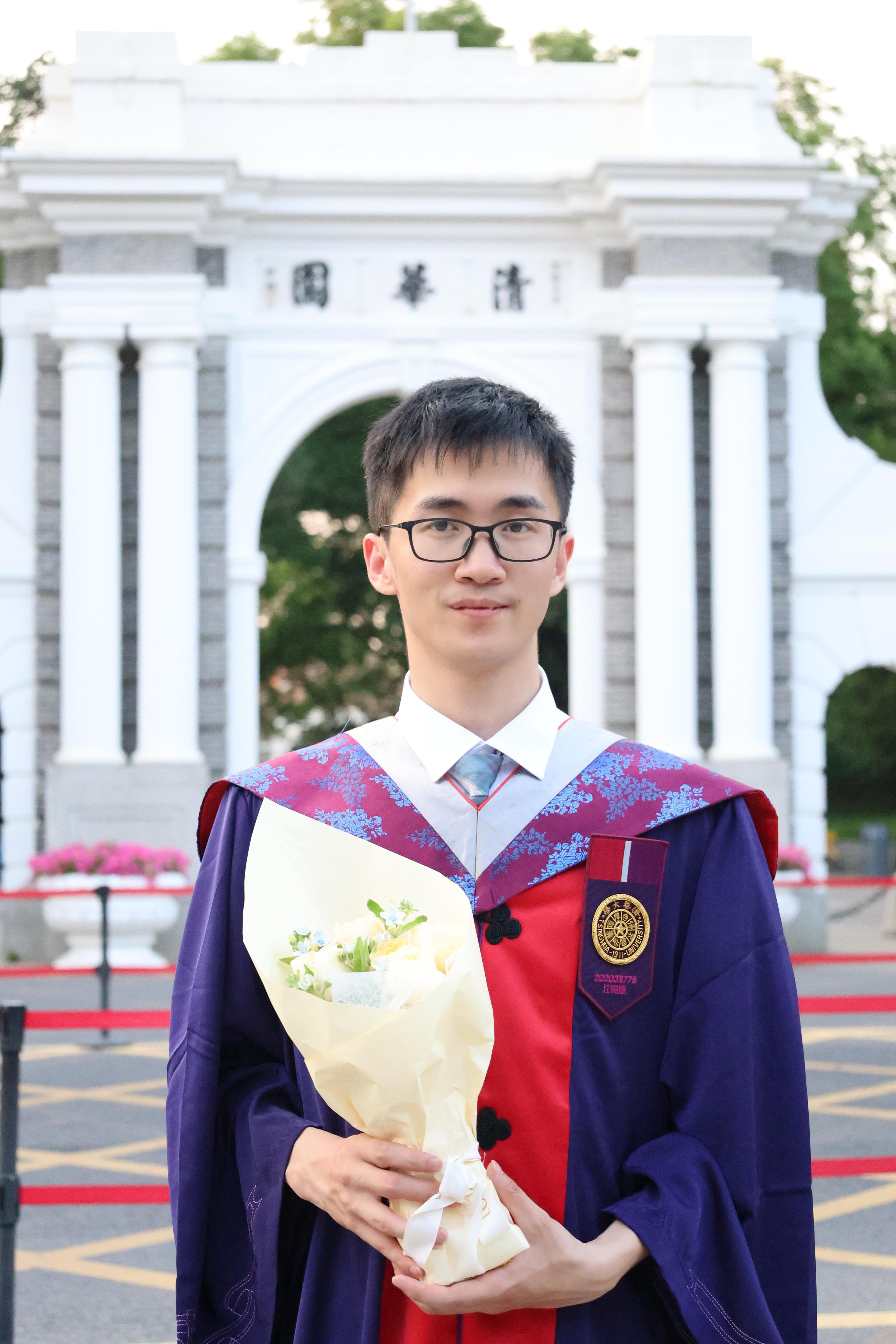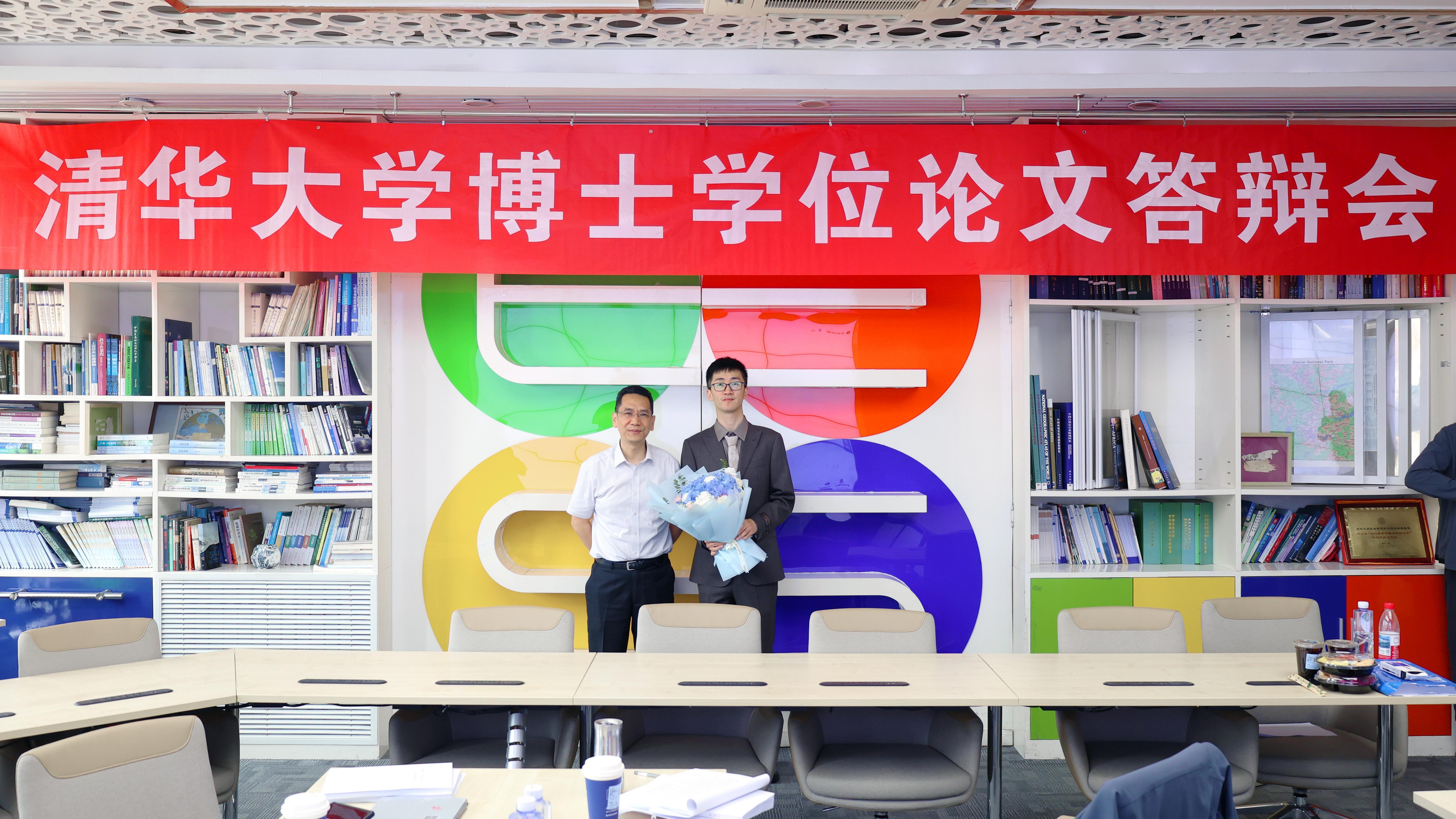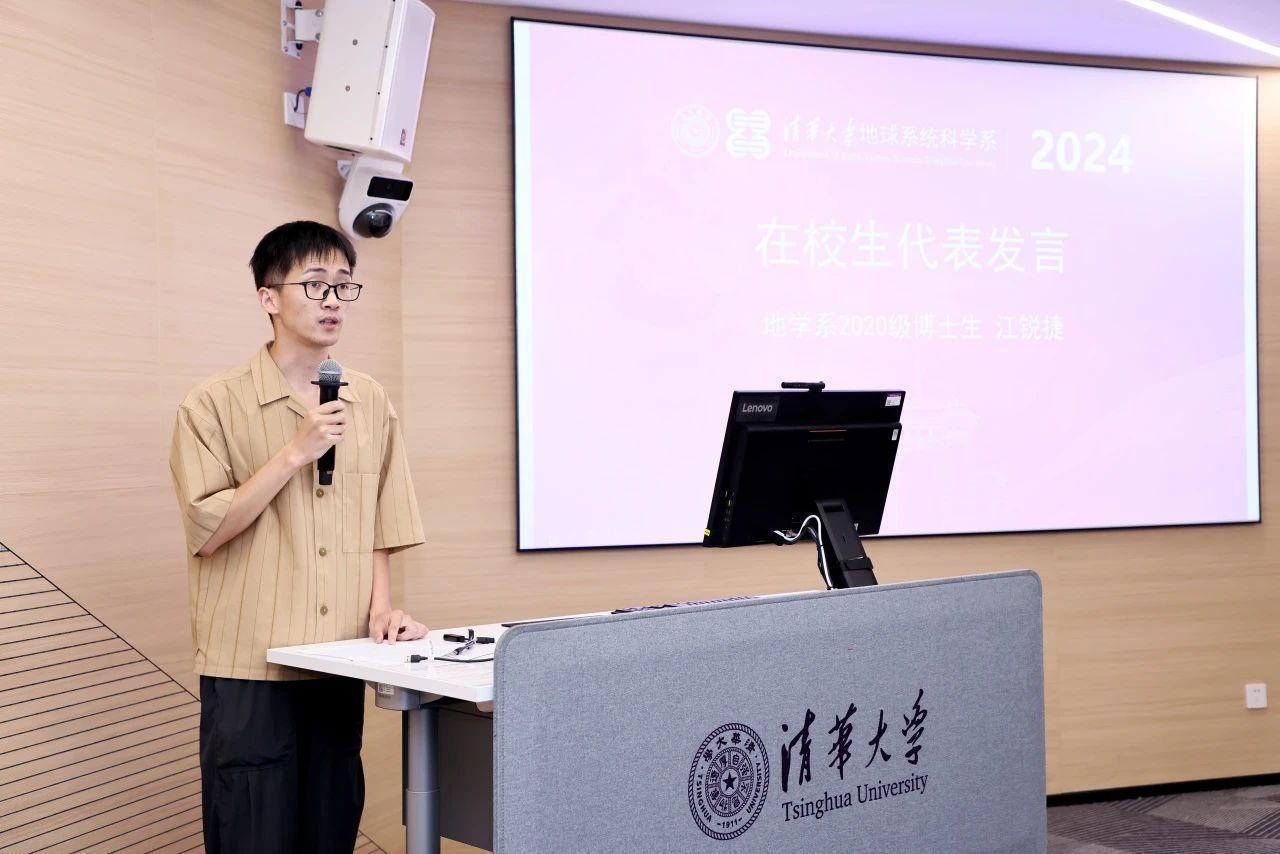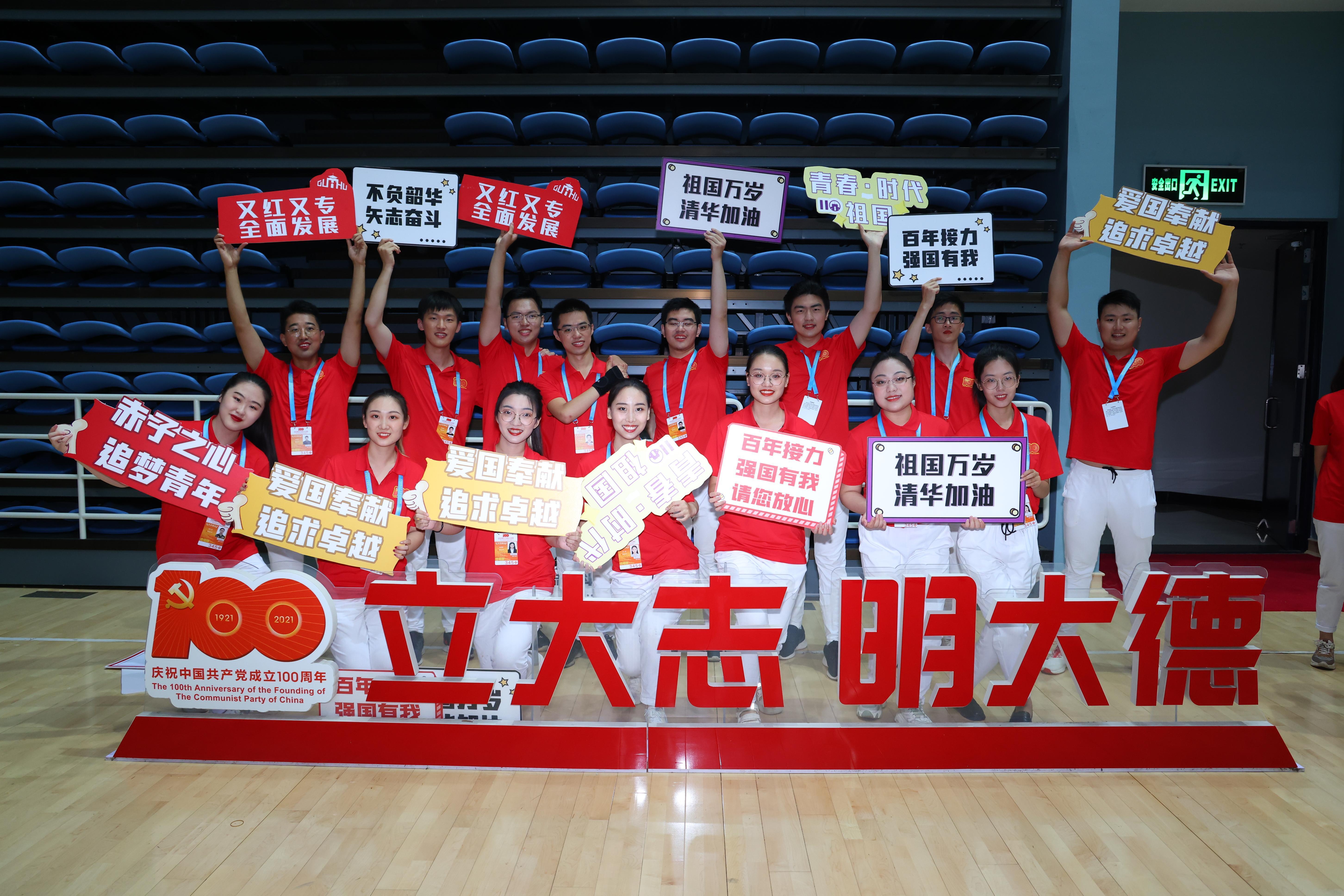Jiang Ruijie, a Class 2025 Ph.D. graduate from Tsinghua University's Department of Earth System Science (DESS) and "Outstanding Graduate of Beijing", earned his bachelor's degree from Nanjing University's School of Geography and Ocean Science. In 2020, he was admitted to Tsinghua DESS through recommendation to pursue a Ph.D. in Ecology under Professor Lu Hui, specializing in hydrological modeling and flood risk prediction. During his doctoral studies, he received honors including Beijing Municipal "Three Good Student", Tsinghua Outstanding Student Cadre, Tsinghua Outstanding Postgraduate Party Branch Secretary (twice), and Tsinghua Comprehensive Excellence First-Class Scholarship (twice).

Scientific Inquiry: Progressive Breakthroughs, Blossoming Discoveries
Jiang Ruijie's doctoral journey revolved entirely around water. Against the backdrop of global environmental change—where the risks of flood disasters are becoming increasingly pronounced—the quest to comprehend and predict water's behavior with precision became his intellectual compass. Positioning himself as a "digital water detective," he dedicated his research to unraveling the enigmatic mechanisms underlying the natural hazard of flood.
After completing his undergraduate studies in marine science, Jiang Ruijie chose to pursue graduate research at Tsinghua’s Department of Earth System Science (DESS). This decision was influenced by recommendations from senior students who highlighted the Department's exceptional academic platform and its renowned faculty expertise in Earth system modeling and simulation. “I've always enjoyed strategic planning,” Jiang explained, “and the prospect of using computational models to simulate future scenarios struck me as both intellectually stimulating and practically significant—that’s what ultimately brought me here.”
His research revealed that merely predicting flood occurrence was insufficient – understanding flood origins and societal impacts required holistic approaches. He pioneered a cascading framework that simulates flood dynamics across their full lifecycle—from initiation to propagation, headwaters to estuaries, and physical mechanisms to socioeconomic impacts. This model generates predictive “flood risk maps” forecasting climate-driven alterations in flood intensity and hazards across global river basins, while pinpointing key determinants. His research path encountered professional hurdles, including manuscript rejections amid peers' publishing successes. “I experienced bouts of uncertainty, grappling to diagnose the core shortcomings,” Jiang reflected.
Rejecting retreat, he affirmed, “Pressing forward with research alleviates pressure; while stagnation magnifies it.” Amidst the inherent routine of research life, Jiang found solace in daily discipline—validating literature-inspired hunches and operationalizing models became his small victories. Professor Lu Hui stood as his steadfast anchor, offering unwavering support and encouragement throughout his scientific journey. Professor Lu never imposed pressure on us. His constant refrain was, “Research should be an enjoyable pursuit—even when results don’t materialize quickly, resist the impulse toward self-doubt.”This quiet yet steadfast support became Jiang’s anchor, allowing him to discover his cadence through persistent experimentation and ultimately conquer successive challenges.

Jiang Ruijie with his advisor Professor Lu Hui
Serving Peers: Dedication Fosters Growth
Since his first doctoral year, Jiang actively contributed to party and student organization development, serving as Monitor of Freshman Class of DESS Doctoral Program, Graduate Youth League Branch Secretary, Party Branch Secretary of Freshman Class, and Class Assistant of Class 9. Tsinghua's ethos of “political integrity and professional excellence” and Professor Lu’s mentorship motivated his service commitment. “Student work became both a complementary experience to research and a form of relaxation,” he noted.
As Graduate Youth League Secretary and Party Branch Secretary of Freshman Class of DESS Doctoral Program, Jiang addressed the problem of low participation in mandatory activities by surveying student needs, transforming "task lists" into meaningful engagement platforms. He organized themed events including ideological education, volunteer services, career development, and academic exchanges under the framework of "integrating Party history study with holistic development." His leadership earned Freshman Class of DESS Doctoral Program the "2021-2022 Tsinghua Outstanding Postgraduate Collective" and its Youth League Branch the "2022 Tsinghua Class-A Youth League Branch" honors. Reflecting on these roles, Jiang observed, “Persistent attention to seemingly trifling tasks cumulatively strengthens collective cohesion -- a profoundly tangible achievement.”

Jiang Ruijie speaking at freshman orientation
Volunteerism: Gratitude in Action
Jiang exemplified the Party member's vanguard role through extensive volunteering, notably participating in The Great Journey performance commemorating the CPC Centenary. Despite nightly rehearsals, this became his most memorable collective experience during his doctoral studies, “Contributing to this centennial retrospective filled me with enduring pride.”

Jiang Ruijie performing in The Great Journey collegiate choir
Jiang credits his Tsinghua years for connecting him with inspiring mentors and lifelong friends. Advisor encouragement and peer support ensured that he “never fought alone.” Beyond earning his doctorate, he gained enhanced research capabilities, “Faculty guidance and the Department's frequent academic seminars broadened my perspectives and enriched my experience.”
After graduation, Jiang will continue as a postdoctoral researcher at Tsinghua, “The five years have only ignited my scholarly passion—intensifying my bond with this campus I now call home.”
Written by Jiang Ruijie
Edited by Wang Jiayin
Reviewed by Geng Rui, Lu Hui, Yu Le, and Chen Yawei